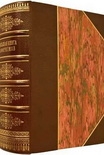American Sherlocks by Nick Rennison (good books to read for 12 year olds .TXT) 📗

- Author: Nick Rennison
Book online «American Sherlocks by Nick Rennison (good books to read for 12 year olds .TXT) 📗». Author Nick Rennison
Clamorous, insistent, the applause continued. She reappeared; silence came as she lifted the violin to her chin. The lilting fantasy of a folk-song rollicked from under the dancing bow. Once more came the enthusiastic outburst when she finished. She gestured her thanks, smiled an instant at the upper right-hand box, laughed and kissed her hand to the lone occupant of lower left and ran from the stage.
‘Sheer genius, Sydney!’ murmured Thornley Colton, in expression of the reverence good music always aroused in him; for music, to the blind man, held all the pleasures that painting, sculpture, and beautiful architecture hold for those whom God has given sight. Now his whole face, from the high forehead to the lean, cleft chin, was alight; even the sightless eyes seemed to shine behind the great blue circles of the smoked-glass, tortoise-shell-rimmed library spectacles that accentuated the striking whiteness of his face and hair.
‘Wonderful!’ breathlessly agreed the red-cheeked, black-haired Sydney Thames, secretary and constant companion of the blind man.
‘It makes my woids muss up when I try to talk,’ gulped The Fee, freckle-faced, red-haired, blue-eyed boy, who had become a member of the Colton household at the conclusion of a particularly baffling murder case. Thornley Colton laughed softly and pushed back his chair. Then real alarm came to the boy’s voice. ‘Gee, yuh ain’t goin’ now?’ he pleaded. ‘They’s a coupla comedy acr’bats an’ a wop knife t’rower yet!’
‘We’ll wait,’ promised Colton, as he made room for a pale-faced young man who had just risen to hurry past him and out of the box.
The problemist moved his chair farther back, and whispered to Sydney. ‘Our friend who just left seems to be troubled with a mighty bad case of nerves,’ he observed. ‘My cane could feel his chair trembling under him the whole time the girl was playing. He seemed to jump a foot when she left the stage that last time, and he’s been muttering under his breath ever since. What happened?’
‘I’d say he was wildly in love with her, and madly jealous of someone else,’ accounted Sydney. ‘She smiled up at him an instant after that last encore, but she immediately turned and kissed her hand to the man in the lower left-hand box. If ever black rage shone in a man’s face it was on that of our neighbour. He isn’t more than twenty-two or three, and he doesn’t look as if he had ever learned to curb a nasty temper.’
‘He left as if he were going in search of someone’s heart blood,’ smiled the blind man, leaning back in his chair.
One of the comedy acrobats had just succeeded in pushing the other from a high table, and was joyously dancing on his rubber stomach, to the great delight of The Fee, and some fourteen or fifteen hundred others.
‘You don’t happen to know the occupant of lower left?’ asked Colton. Somehow the thought of sordid jealousy of two men, and a girl whose witchery could produce such music, seemed to jar.
Sydney gazed covertly down at the occupant of lower left. He was a big-bodied man, and fat.
There were fleshy pouches of good living and bad drinking under his eyes; but no dissipation could hide the iron will, the dominant arrogance the heavy chin showed. He sat back in the deep box, the black of his evening clothes verging into the black of the heavy velvet hangings that covered the wall behind him. The white expanse of shirt front contrasted strikingly with the sombre background; one white fist rested on the back of a gold chair.
‘It’s James P Cartwright, the theatrical manager!’ returned Sydney suddenly. ‘Her manager!’ he supplemented in sudden anger as he compared the innocent girlishness of the violinist and the coarse grossness of the recognized man in the box. Sydney Thames deified all women from afar, for he had forbidden himself the joys of propinquity, because he could never forget that he had no name but that of the English river on the banks of which Thornley Colton had found him, a bundle of dirty baby-clothes, years before.
‘Cartwright has an unenviable reputation among his women of the stage,’ muttered Colton. The smile was gone from the thin, expressive lips now.
The rocking notes of the fantastic folk-song still haunted him; the sobbing cadence of the piece she had played before was in his mind: an omen of tragedy. A soul that could conjure music like that – and a Cartwright, who, gossip said, demanded his price for others’ success!
The two comedy acrobats had disinterred themselves from an avalanche of chairs and a table; the first to his feet had been promptly knocked down by the other, and dragged off the stage by his heels, while The Fee and a few hundred others shouted and clapped their approval. A card announced Signor Delvetoi and his marvellous whirling knives.
Sydney, watching the occupant of the lower left, saw him take out a big watch impatiently, lean ponderously back in a chair, and summon an usher. The uniformed man came, listened a moment, nodded, and opened the door at the stage end of the box, to reappear a moment later and whisper his message, or news. Cartwright nodded, and turned his attention idly toward the stage, where the signor sent a whirling knife toward the high boards before which his yellow-haired partner had set a red apple swinging on a long string. The knife point thudded into the wood; the cut string parted, and the apple rolled to the stage floor.
‘Gee, that’s some stunt!’ ecstatically exclaimed The Fee, as he enthusiastically described the feat of the black-bearded signor to Colton.
A handful of playing cards flurried before the wooden stop. Three whirling knives shot across the whole length of the stage; three cards were pinned fast, and the assistant held them up triumphantly to show the pierced ace spots.
Cartwright inclined his head in a nod of grudging approval, then turned quickly as he heard the door that led back





Comments (0)